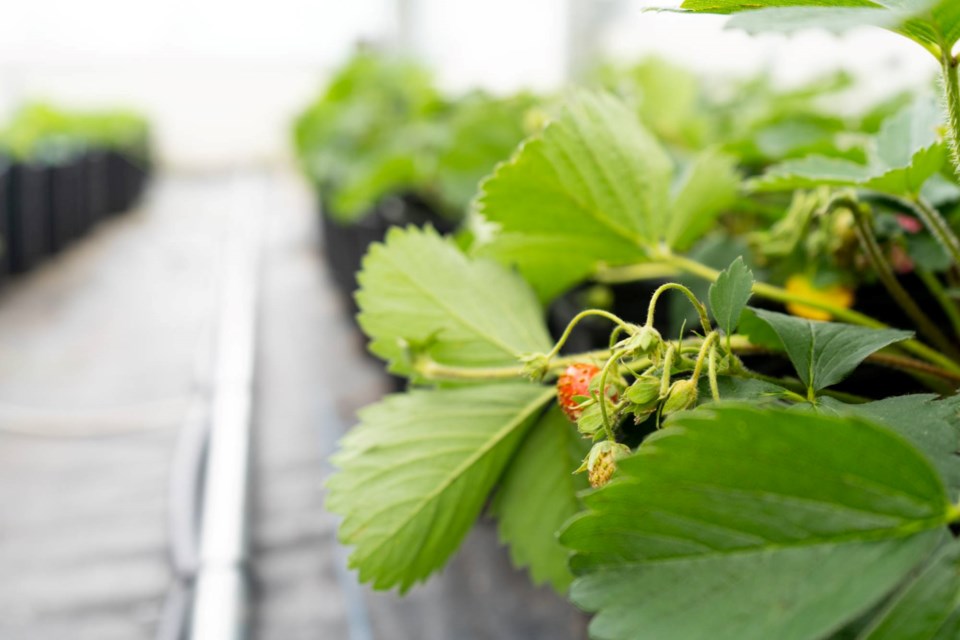A coalition of Northern Ontario researchers has received $1 million to develop a new process for growing berries year-round in extreme climates.
Announced on October 4, the funding will go to Research & Innovation Boréal, the applied research arm of Sudbury’s Collège Boréal, along with partners including the Rural Agri-innovation Network (RAIN) in Sault Ste. Marie, Truly Northern Farms in Sudbury, and AgriTech North in Dryden.
RAIN, a part of the Sault Ste. Marie Innovation Centre, provides agriculture-related support and resources to producers across Northern Ontario, while Truly Northern and AgriTech North are container farms using sophisticated hydroponic systems to grow greens year-round.
Together, the partners are aiming to develop a new hydroponics approach that combines innovative techniques, infrastructure, and equipment suitable for extreme climates.
Funding comes from the Homegrown Innovation Challenge, an initiative of the Weston Family Foundation, the charitable organization founded by the Weston family, which owns the Loblaw grocery chain.
Daniel Giroux, president at Collège Boréal, said the project aims to reduce the country’s reliance on imports and address “global environmental challenges related to food production and mass transportation.”
“Providing a brighter tomorrow for all future graduates of Collège Boréal means not only being committed to our students’ academic and professional success, but also being environmentally and socially responsible, as showcased by this research project,” he said in an October 4 news release. “We want to thank our partners and the Boréal researchers whose contributions help improve the quality of life in our regions and elsewhere in Canada.”
According to Boréal, the project will test a system of multi-layer hydroponic grow racks, water-cooled programmable lighting, and integrated pest management strategies to improve the economic viability of berry production.
Researchers will also test an “innovative, new-to-Canada greenhouse envelope, along with an environmentally sustainable ecological thermal harvesting system capable of recapturing and utilizing waste heat.”
“We are developing a multi-layer hydroponic farming solution that is affordable, modular and easy to deploy in a variety of growing environments,” said Stéphane Lanteigne, the owner-operator at Truly Northern Farms, in the release.
“To support food sustainability in all parts of Canada, we need solutions that make economic sense at smaller scales and that are designed with market farmers in mind.
“We’re excited to work with other organizations in Northern Ontario with the goal of finding better solutions to feed the North.”
The school noted that it’s the only college in Canada to receive funding through the Homegrown Innovation Challenge.
The research project is expected to run for 18 months, between April 2023 and October 2024.




